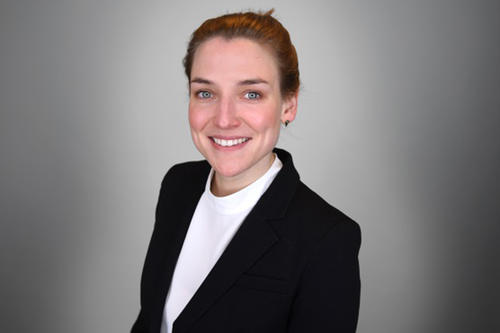European Union: Crisis in the Neighborhood
Researchers from Freie Universität are investigating why the European Union has been unable to ensure lasting peace and prosperity in the post-Soviet states with its “Eastern Partnership.”
May 22, 2017
Pro-EU demonstration in Kiev the day before the start of the third Eastern Partnership Summit at the end of November 2013.
Image Credit: Evgeny Feldman, CC BY-SA 3.0
Esther Ademmer at Freie Universität’s Otto Suhr Institute is studying the crisis in the neighborhood of the European Union.
Image Credit: Privat
When the European Union (EU) launched its Eastern Partnership program with Armenia, Azerbaijan, Georgia, the Republic of Moldova, Ukraine, and Belarus in 2008, there were high hopes for political transformation. So far, however, the partnership with the EU has not brought lasting positive effects on peace, prosperity, and stability in any of these countries.
In a research project at Freie Universität coordinated by political scientist Tanja Börzel, scholars are working to find the root causes. They are also studying how it might still be possible to achieve these aims in the future. The project, titled “EU-STRAT – The EU and Eastern Partnership Countries. An Inside-Out Analysis and Strategic Assessment,” is an international cooperative initiative between eleven universities and research institutes, including partners from the European Union and Switzerland alongside partners from Moldova, Ukraine, and Belarus. Esther Ademmer, a political scientist from the Otto Suhr Institute at Freie Universität who holds a doctorate in her field, is responsible for the academic coordination of the project.
She explains that the European Union underestimated how close the ties between the former Soviet states and Russia were, saying, “As much interest as they have in positive relations with the European Union, Armenia, Azerbaijan, Georgia, Moldova, Ukraine, and Belarus are highly interested – albeit to different degrees – in good relations with Russia.” Ademmer adds that these countries are often economically dependent on their large neighbor, but they also maintain close ties with other countries, including Turkey and the United States. “The EU’s role was overvalued in previous analyses,” she says. “Our approach is to consider the perspectives of the individual countries.” This includes a joint analysis of the economic and political systems in question. “We want to know what incentives internal elites within each country have to carry out political reforms,” Ademmer says.
The project’s starting point is a research approach pursued by Douglass North, an American economist. It distinguishes between “limited access orders,” in which political elites control the economy, and “open access orders,” which are shaped by political and economic competition. Limited access orders are typically found in developing countries, while open access orders are typical of the industrialized countries of the Western world. Ademmer explains that North described two poles, and the EU-STRAT project’s goal is now to classify the area between them. “The objective is to use this approach to be able to better describe the systems in the countries in Eurasia that fall somewhere between limited access and open access,” she says.
De facto Lack of Political Competition
Ademmer says that while political competition exists in formal terms in the countries the project is studying, it is limited in actual practice. “The elites there do not have much interest in free and fair elections,” she points out. She is also careful to add that this is not the same thing as with dictatorships, where change is almost impossible. “We aim to analyze precisely who the players are who could step in to support political competition in the countries in Europe’s eastern neighborhood – and how they can be strengthened,” Ademmer explains.
The researchers hope to understand the situation in these countries, but that isn’t all; they also aim to explore ways in which the European Union could exert an influence. This is true of both politics and the local economy. For example, plans call for a concrete study of how corruption can be reduced and the formation of monopolies can be prevented, and how oligarchic economic forms can be shifted toward fairer competition. “We want to find out where the gateways for external influence lie in order to support states as they develop into open access orders,” Ademmer says. Still, she cautions, “There also has to be a political will to use them.”
Further Information
Dr. Esther Ademmer, Otto Suhr Institute, Freie Unversität, Tel.: +49 30 - 838-61027, Email: esther.ademmer[at]fu-berlin.de


